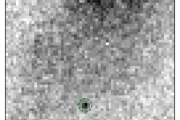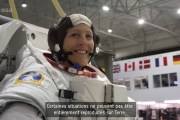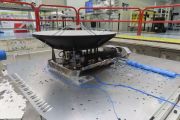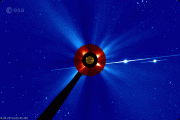
Copernical Team
First metal 3D printing on Space Station
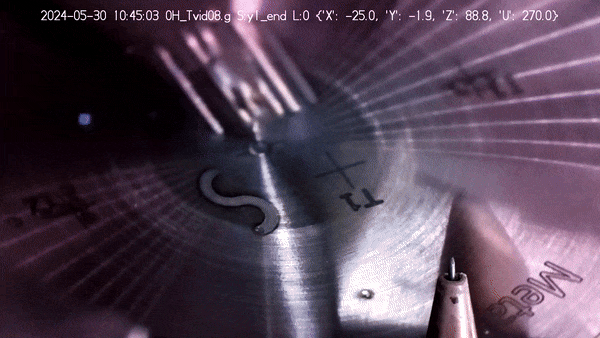 Image:
First metal 3D printing on Space Station
Image:
First metal 3D printing on Space Station China lands a spacecraft on the moon's far side to collect rocks for study
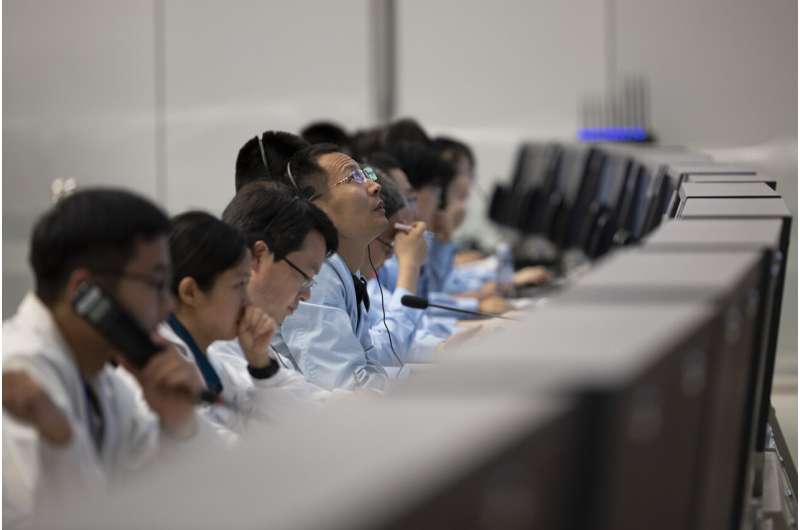
ESA to unveil Europe's future in space at ILA 2024

The 2024 edition of the Berlin International Airshow (ILA), Germany's largest aerospace trade show, returns to Berlin ExpoCenter Airport from 5 to 9 June. The European Space Agency is taking part to present Europe's future endeavours in space and the agency’s ambitions. On the first three days, an extensive programme of sessions awaits thousands of professional attendees, while the last two days will be open to the public, welcoming visitors of all ages and backgrounds.
EarthCARE satellite launches to probe how clouds affect climate
 A rocket carrying a sophisticated satellite blasted off Tuesday from California on a mission to investigate what role clouds could play in the fight against climate change.
The EarthCARE orbiter, the result of collaboration between the European Space Agency (ESA) and Japan's JAXA space agency, launched on a SpaceX Falcon 9 rocket from Vandenberg air base at 3:20 pm local time (2220 GMT).
A rocket carrying a sophisticated satellite blasted off Tuesday from California on a mission to investigate what role clouds could play in the fight against climate change.
The EarthCARE orbiter, the result of collaboration between the European Space Agency (ESA) and Japan's JAXA space agency, launched on a SpaceX Falcon 9 rocket from Vandenberg air base at 3:20 pm local time (2220 GMT). Satellite, 'poopaganda', missiles: What's North Korea up to?
 A failed satellite launch, floating hundreds of trash-filled balloons into the South, and firing a volley of 10 short-range ballistic missiles: North Korea has had a busy week.
AFP takes a look at what's going on:
What's driving recent actions?
The flurry of activity can be seen as an angry retort from Kim Jong Un's regime to China, South Korea and Japan, experts say, specifically t
A failed satellite launch, floating hundreds of trash-filled balloons into the South, and firing a volley of 10 short-range ballistic missiles: North Korea has had a busy week.
AFP takes a look at what's going on:
What's driving recent actions?
The flurry of activity can be seen as an angry retort from Kim Jong Un's regime to China, South Korea and Japan, experts say, specifically t Boeing's first astronaut flight called off at the last minute in latest setback
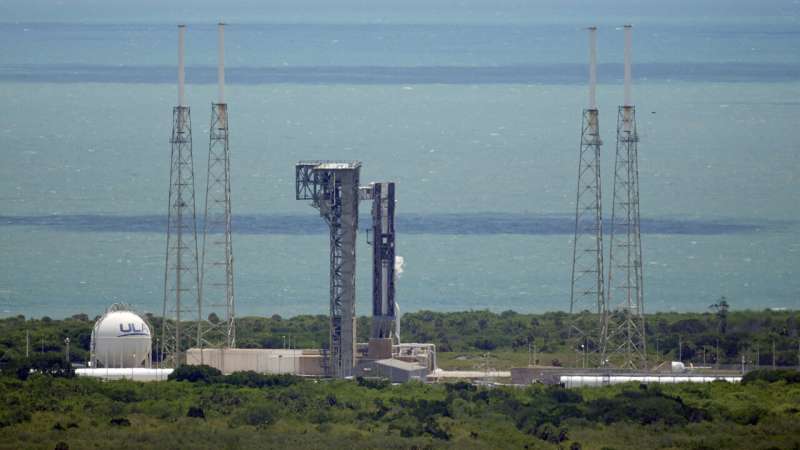
Last-minute computer trouble nixed Saturday's launch attempt for Boeing's first astronaut flight, the latest in a string of delays over the years.
Two NASA astronauts were strapped in the company's Starliner capsule when the countdown automatically was halted at 3 minutes and 50 seconds by the computer system that controls the final minutes before liftoff.
With only a split second to take off, there was no time to work the latest problem and the launch was called off.
Technicians raced to the pad to help astronauts Butch Wilmore and Suni Williams out of the capsule atop the fully fueled Atlas V rocket at Cape Canaveral Space Force Station.
A Chinese spacecraft lands on the moon's far side to collect rocks in growing space rivalry with US

Japan billionaire Maezawa cancels moon trip due to uncertainty over SpaceX rocket development

China probe successfully lands on far side of Moon
 China's Chang'e-6 lunar probe successfully landed Sunday on the far side of the Moon to collect samples, state media reported - the latest leap for Beijing's decades-old space programme.
The Chang'e-6 set down in the immense South Pole-Aitken Basin, one of the largest known impact craters in the solar system, state news agency Xinhua said, citing the China National Space Administration.
China's Chang'e-6 lunar probe successfully landed Sunday on the far side of the Moon to collect samples, state media reported - the latest leap for Beijing's decades-old space programme.
The Chang'e-6 set down in the immense South Pole-Aitken Basin, one of the largest known impact craters in the solar system, state news agency Xinhua said, citing the China National Space Administration. Roscosmos Progress 88 cargo spacecraft docked at the International Space Station
 NASA's unmanned Progress 88 cargo spacecraft docked successfully at the International Space Station on Saturday morning.
Progress 88 linked up with the ISS at 7:47 a.m. EDT after traveling about two days from its launch point in Kazakhstan to the ISS.
The Progress 88 spacecraft launched atop a Soyuz rocket at 5:43 a.m. EDT Thursday from the Baikonur Cosmodrome in Kazakhstan.
NASA's unmanned Progress 88 cargo spacecraft docked successfully at the International Space Station on Saturday morning.
Progress 88 linked up with the ISS at 7:47 a.m. EDT after traveling about two days from its launch point in Kazakhstan to the ISS.
The Progress 88 spacecraft launched atop a Soyuz rocket at 5:43 a.m. EDT Thursday from the Baikonur Cosmodrome in Kazakhstan. 



